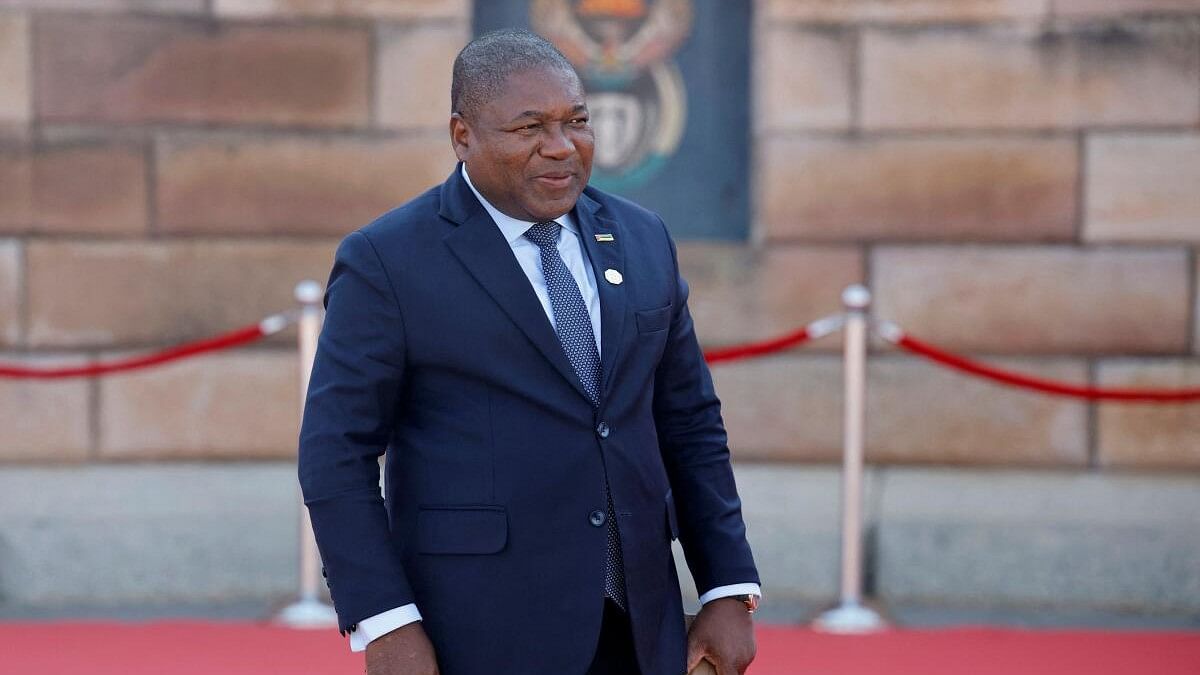
South Africa's Cyril Ramaphosa.
Credit: Reuters Photo
Johannesburg: A month after the general election, South African President Cyril Ramaphosa has announced his new cabinet, drawing nine of the 11 parties in the Government of National Unity (GNU) into ministerial positions in an expanded executive.
The announcement late on Sunday night ended widespread speculation about the threat to the GNU after leaked letters between Ramaphosa, representing the African National Congress (ANC), and opposition Democratic Alliance (DA) leader John Steenhuysen, showed that neither of them was willing to trade off his initial offers and demands for positions.
In a move that surprised many, Ramaphosa managed to strike a balance between the view within the party that saw an alliance with the DA as "selling out the ANC," and the need for inclusivity.
He achieved this by splitting up some current portfolios and adding two deputy ministers to a number of existing portfolios.
The ANC was forced to enter into a GNU after it garnered just 40 per cent of the vote, losing the majority it had held since Nelson Mandela first led it to power in 1994 after decades of white minority rule.
"In casting their votes, the people made it clear that they expect political parties to work together to deliver on a mandate of transformation, growth and renewal," Ramaphosa said in a nationally televised address.
He said that it was agreed that a GNU, which brings together parties from across the political spectrum, should be formed. "This GNU would be bound by certain fundamental principles and would undertake a basic minimum programme of priorities." He announced that the ANC, DA, Patriotic Alliance, Inkatha Freedom Party, Good Party, Pan Africanist Congress of Azania, Freedom Front Plus, United Democratic Movement, Al Jama’ah -- all members of the GNU -– would have representatives in the cabinet.
Ramaphosa said he was forced to renege on an earlier statement that he would reduce the number of cabinet positions.
"In some instances, we have considered it necessary to separate certain portfolios to ensure that there is sufficient focus on key issues," he said.
According to the restructuring, the ministries of Electricity and Energy will be merged and there will be a separate ministry of Mineral and Petroleum Resources.
The ministry of Agriculture will be separated from the ministry of Land Reform and Rural Development and Higher Education will be separated from Science, Technology and Innovation.
The ministry of Justice and Constitutional Development will be separated from the ministry of Correctional Services, and there will no longer be a Ministry of Public Enterprises, the president announced.
Ramaphosa said all the parties have made a commitment to respect the Constitution and to promote "accountable and transparent governance, evidence-based policy and decision-making, the professionalisation of the public service, integrity and good governance." "The incoming government will prioritise rapid, inclusive and sustainable economic growth. It is important that we deploy into positions of responsibility people who are committed, capable and hard-working, and who have integrity," Ramaphosa said, as he announced that Paul Mashatile would be retained as the Deputy President and Enoch Godongwana as Finance Minister.
The latter's retention brought a sigh of relief to the business sector, which had concerns about a change impacting on the economy and much-needed investment in the country.
"We have sought to ensure that the National Executive is representative of the people of South Africa, giving due consideration to gender, youth, demographics and regional distribution," Ramaphosa said announcin the names of 32 ministers and 43 deputy ministers.
The ANC will have 20 ministers and 33 deputy ministers.
Steenhuysen will take up the position of Minister of Agriculture, with five of his DA colleagues also getting ministerial positions, and another six slated to serve as deputy ministers.
The PA, Good Party, PAC and Freedom Front Plus will each have a minister in the cabinet, with IFP getting two ministers and one deputy minister position as well.
Other partners in the GNU – UDM and Al Jama'ah -- will have one Deputy Minister each.
"These men and women we have appointed to the executive are drawn from all corners of our country. They reflect the diversity of our nation. They have a responsibility to work together to serve the people as a whole," said Ramaphosa.
"None of the members of the National Executive has been appointed to serve the interests of a particular constituency, a particular party or a particular section of society. Collectively and individually, they are responsible to the people of South Africa," he added.
The president also shared that in the spirit of collaboration, the incoming government will work together with other formations to convene national dialogue.
In this national dialogue, he said, all parties, civil society groups, labour, business and other stakeholders will be invited to work together to address the critical challenges facing the nation.
"We call on all South Africans to participate in the National Dialogue and to give their support to this Government of National Unity as it begins its work," Ramaphosa said.